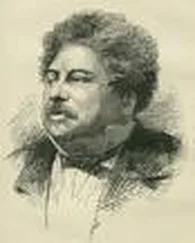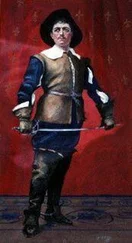Alexandre Dumas - Louise de la Valliere
Здесь есть возможность читать онлайн «Alexandre Dumas - Louise de la Valliere» — ознакомительный отрывок электронной книги совершенно бесплатно, а после прочтения отрывка купить полную версию. В некоторых случаях можно слушать аудио, скачать через торрент в формате fb2 и присутствует краткое содержание. Жанр: literature_19, foreign_antique, foreign_prose, на английском языке. Описание произведения, (предисловие) а так же отзывы посетителей доступны на портале библиотеки ЛибКат.
- Название:Louise de la Valliere
- Автор:
- Жанр:
- Год:неизвестен
- ISBN:нет данных
- Рейтинг книги:5 / 5. Голосов: 1
-
Избранное:Добавить в избранное
- Отзывы:
-
Ваша оценка:
- 100
- 1
- 2
- 3
- 4
- 5
Louise de la Valliere: краткое содержание, описание и аннотация
Предлагаем к чтению аннотацию, описание, краткое содержание или предисловие (зависит от того, что написал сам автор книги «Louise de la Valliere»). Если вы не нашли необходимую информацию о книге — напишите в комментариях, мы постараемся отыскать её.
Louise de la Valliere — читать онлайн ознакомительный отрывок
Ниже представлен текст книги, разбитый по страницам. Система сохранения места последней прочитанной страницы, позволяет с удобством читать онлайн бесплатно книгу «Louise de la Valliere», без необходимости каждый раз заново искать на чём Вы остановились. Поставьте закладку, и сможете в любой момент перейти на страницу, на которой закончили чтение.
Интервал:
Закладка:
“I understand you, Monsieur de Guiche. In spite of what you say, there cannot be any question between us, just now, either of Bragelonne or of this insignificant girl, whose name is La Valliere.”
At this moment some of the younger courtiers were crossing the apartment, and having already heard the few words which had just been pronounced, were able also to hear those which were about to follow. De Wardes observed this, and continued aloud: – “Oh! if La Valliere were a coquette like Madame, whose innocent flirtations, I am sure, were, first of all, the cause of the Duke of Buckingham being sent back to England, and afterwards were the reason of your being sent into exile; for you will not deny, I suppose, that Madame’s pretty ways really had a certain influence over you?”
The courtiers drew nearer to the speakers, Saint-Aignan at their head, and then Manicamp.
“But, my dear fellow, whose fault was that?” said De Guiche, laughing. “I am a vain, conceited fellow, I know, and everybody else knows it too. I took seriously that which was only intended as a jest, and got myself exiled for my pains. But I saw my error. I overcame my vanity, and I obtained my recall, by making the amende honorable , and by promising myself to overcome this defect; and the consequence is, that I am so thoroughly cured, that I now laugh at the very thing which, three or four days ago, would have almost broken my heart. But Raoul is in love, and is loved in return; he cannot laugh at the reports which disturb his happiness – reports which you seem to have undertaken to interpret, when you know, marquis, as I do, as these gentlemen do, as every one does in fact, that all such reports are pure calumny.”
“Calumny!” exclaimed De Wardes, furious at seeing himself caught in the snare by De Guiche’s coolness of temper.
“Certainly – calumny. Look at this letter from him, in which he tells me you have spoken ill of Mademoiselle de la Valliere; and where he asks me, if what you reported about this young girl is true or not. Do you wish me to appeal to these gentlemen, De Wardes, to decide?” And with admirable coolness, De Guiche read aloud the paragraph of the letter which referred to La Valliere. “And now,” continued De Guiche, “there is no doubt in the world, as far as I am concerned, that you wished to disturb Bragelonne’s peace of mind, and that your remarks were maliciously intended.”
De Wardes looked round him, to see if he could find support from any one; but, at the idea that De Wardes had insulted, either directly or indirectly, the idol of the day, every one shook his head; and De Wardes saw that he was in the wrong.
“Messieurs,” said De Guiche, intuitively divining the general feeling, “my discussion with Monsieur de Wardes refers to a subject so delicate in its nature, that it is most important no one should hear more than you have already heard. Close the doors, then, I beg you, and let us finish our conversation in the manner which becomes two gentlemen, one of whom has given the other the lie.”
“Messieurs, messieurs!” exclaimed those who were present.
“Is it your opinion, then, that I was wrong in defending Mademoiselle de la Valliere?” said De Guiche. “In that case, I pass judgment upon myself, and am ready to withdraw the offensive words I may have used to Monsieur de Wardes.”
“The deuce! certainly not!” said Saint-Aignan. “Mademoiselle de la Valliere is an angel.”
“Virtue and purity itself,” said Manicamp.
“You see, Monsieur de Wardes,” said De Guiche, “I am not the only one who undertakes the defense of that poor girl. I entreat you, therefore, messieurs, a second time, to leave us. You see, it is impossible we could be more calm and composed than we are.”
It was the very thing the courtiers wished; some went out at one door, and the rest at the other, and the two young men were left alone.
“Well played,” said De Wardes, to the comte.
“Was it not?” replied the latter.
“How can it be wondered at, my dear fellow; I have got quite rusty in the country, while the command you have acquired over yourself, comte, confounds me; a man always gains something in women’s society; so, pray accept my congratulations.”
“I do accept them.”
“And I will make Madame a present of them.”
“And now, my dear Monsieur de Wardes, let us speak as loud as you please.”
“Do not defy me.”
“I do defy you, for you are known to be an evil-minded man; if you do that, you will be looked upon as a coward, too; and Monsieur would have you hanged, this evening, at his window-casement. Speak, my dear De Wardes, speak.”
“I have fought already.”
“But not quite enough, yet.”
“I see, you would not be sorry to fight with me while my wounds are still open.”
“No; better still.”
“The deuce! you are unfortunate in the moment you have chosen; a duel, after the one I have just fought, would hardly suit me; I have lost too much blood at Boulogne; at the slightest effort my wounds would open again, and you would really have too good a bargain.”
“True,” said De Guiche; “and yet, on your arrival here, your looks and your arms showed there was nothing the matter with you.”
“Yes, my arms are all right, but my legs are weak; and then, I have not had a foil in my hand since that devil of a duel; and you, I am sure, have been fencing every day, in order to carry your little conspiracy against me to a successful issue.”
“Upon my honor, monsieur,” replied De Guiche, “it is six months since I last practiced.”
“No, comte, after due reflection, I will not fight, at least, with you. I will await Bragelonne’s return, since you say it is Bragelonne who finds fault with me.”
“Oh no, indeed! You shall not wait until Bragelonne’s return,” exclaimed the comte, losing all command over himself, “for you have said that Bragelonne might, possibly, be some time before he returns; and, in the meanwhile, your wicked insinuations would have had their effect.”
“Yet, I shall have my excuse. So take care.”
“I will give you a week to finish your recovery.”
“That is better. We will wait a week.”
“Yes, yes, I understand; a week will give time to my adversary to make his escape. No, no; I will not give you one day, even.”
“You are mad, monsieur,” said De Wardes, retreating a step.
“And you are a coward, if you do not fight willingly. Nay, what is more, I will denounce you to the king, as having refused to fight, after having insulted La Valliere.”
“Ah!” said De Wardes, “you are dangerously treacherous, though you pass for a man of honor.”
“There is nothing more dangerous than the treachery, as you term it, of the man whose conduct is always loyal and upright.”
“Restore me the use of my legs, then, or get yourself bled, till you are as white as I am, so as to equalize our chances.”
“No, no; I have something better than that to propose.”
“What is it?”
“We will fight on horseback, and will exchange three pistol-shots each. You are a first rate marksman. I have seen you bring down swallows with single balls, and at full gallop. Do not deny it, for I have seen you myself.”
“I believe you are right,” said De Wardes; “and as that is the case, it is not unlikely I might kill you.”
“You would be rendering me a very great service, if you did.”
“I will do my best.”
“Is it agreed? Give me your hand upon it.”
“There it is: but on one condition, however.”
“Name it.”
“That not a word shall be said about it to the king.”
“Not a word, I swear.”
“I will go and get my horse, then.”
“And I, mine.”
Читать дальшеИнтервал:
Закладка:
Похожие книги на «Louise de la Valliere»
Представляем Вашему вниманию похожие книги на «Louise de la Valliere» списком для выбора. Мы отобрали схожую по названию и смыслу литературу в надежде предоставить читателям больше вариантов отыскать новые, интересные, ещё непрочитанные произведения.
Обсуждение, отзывы о книге «Louise de la Valliere» и просто собственные мнения читателей. Оставьте ваши комментарии, напишите, что Вы думаете о произведении, его смысле или главных героях. Укажите что конкретно понравилось, а что нет, и почему Вы так считаете.












